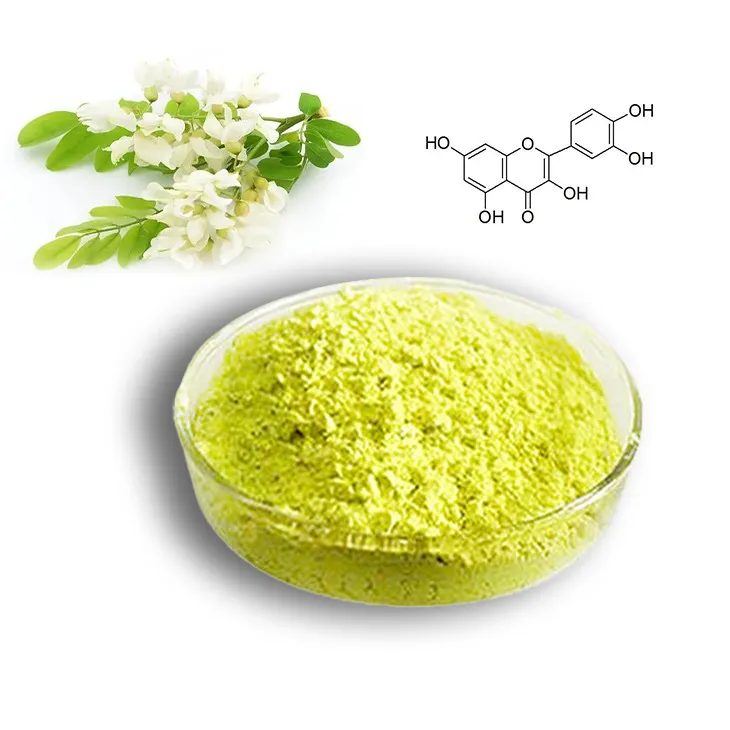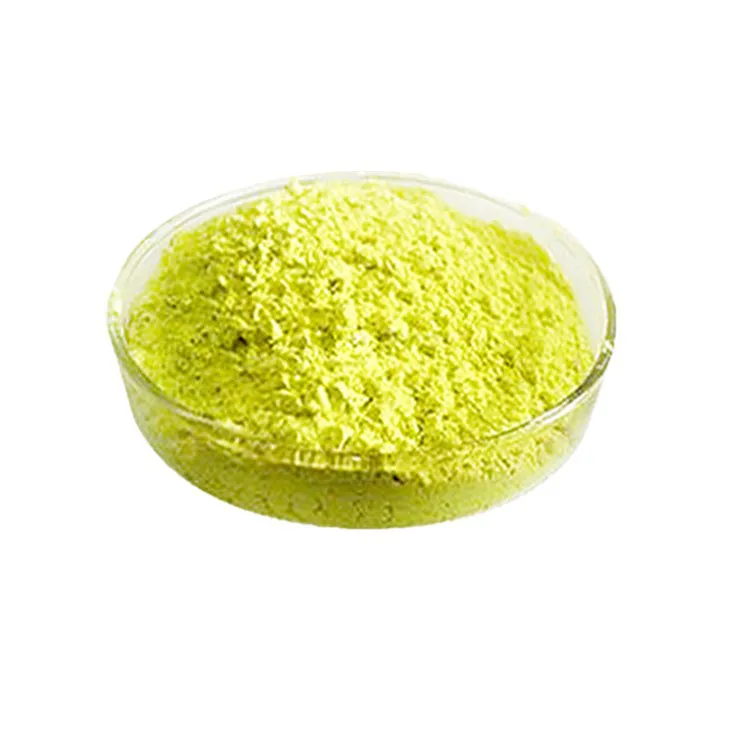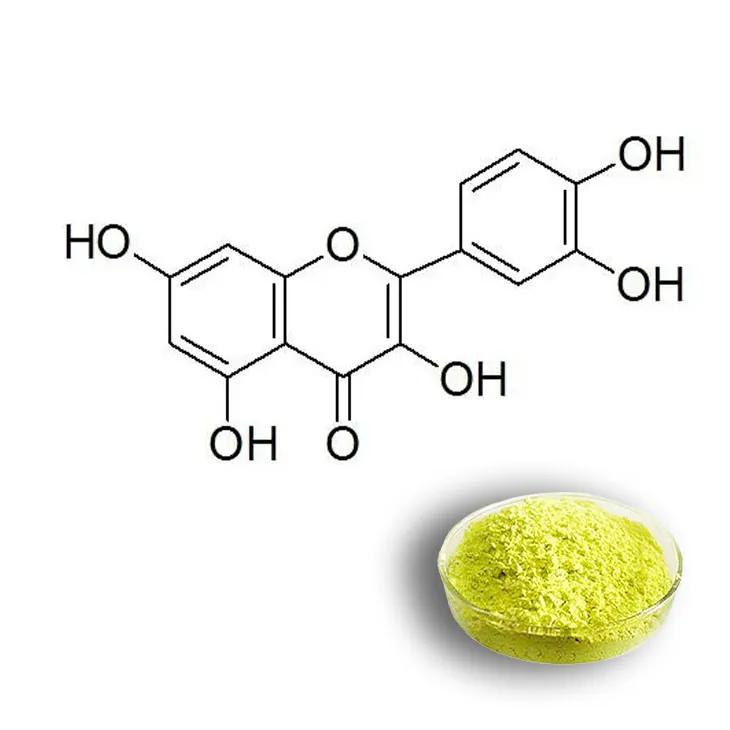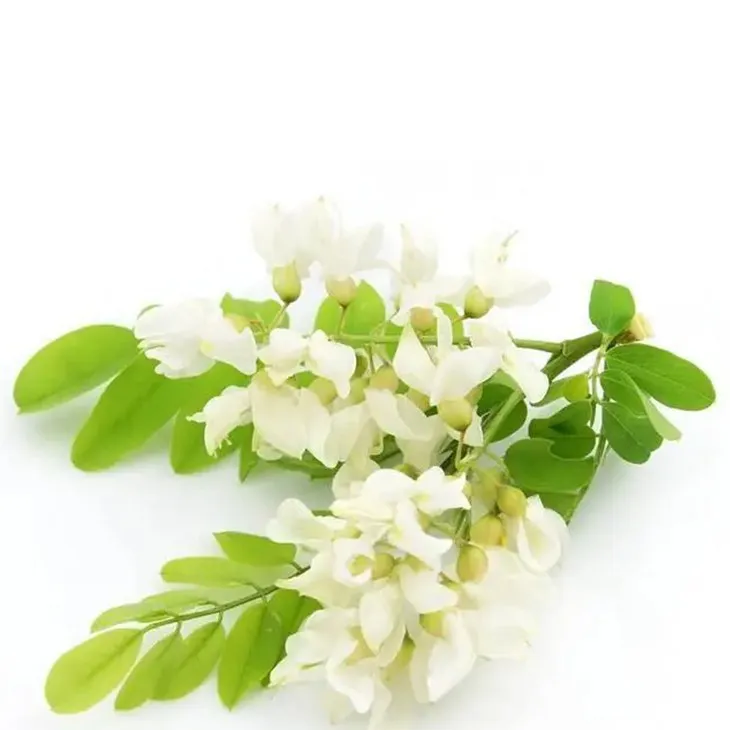- 0086-571-85302990
- sales@greenskybio.com
Lvtian Offers 5 Best Quercetins.
2024-12-22

Introduction to Quercetin
Quercetin is a remarkable flavonoid that has been gaining significant attention in the health and wellness community. It is a natural compound found in various foods and plants, and it offers a plethora of health benefits.
One of the key aspects of Quercetin is its antioxidant properties. Antioxidants are crucial for our bodies as they help combat free radicals. Free radicals are unstable molecules that can cause damage to our cells, leading to various health problems such as aging, heart disease, and cancer. Quercetin, with its antioxidant activity, helps neutralize these free radicals, thus protecting our cells from harm.
Another important function of quercetin is its anti - inflammatory effect. Chronic inflammation is associated with many diseases, including autoimmune disorders, arthritis, and certain types of cancer. Quercetin can help reduce inflammation in the body by modulating the immune response and inhibiting the production of inflammatory mediators.

The Importance of High - Quality Quercetin Sources
When it comes to reaping the benefits of quercetin, the quality of the source matters a great deal. High - potency and high - purity quercetin sources are more likely to provide the desired health effects.
High - potency quercetin means that there is a sufficient amount of the active compound present. This ensures that the body can absorb an adequate quantity to carry out its antioxidant and anti - inflammatory functions. Purity is also crucial as it reduces the risk of contaminants or other substances that may interfere with the action of quercetin or have potential negative effects on health.

GreenSky's 5 Best Quercetin Sources
1. Onions
Onions are a common and easily accessible source of quercetin. They are rich in this flavonoid, especially in the outer layers. The quercetin content in onions can vary depending on the type of onion and how it is prepared.
When onions are consumed, the quercetin they contain can contribute to overall health. For example, the antioxidant support from quercetin in onions may help protect the cells in our body from oxidative stress. Additionally, the anti - inflammatory effects can be beneficial for those with conditions related to inflammation, such as joint pain or digestive disorders.
Moreover, onions are a staple in many cuisines around the world, making it easy to incorporate them into our daily diet. Whether raw in salads, cooked in soups or stir - fries, onions can be a delicious way to increase our quercetin intake.
2. Apples
Apples are not only a popular and delicious fruit but also a great source of quercetin. The skin of the apple contains a significant amount of this flavonoid. This is one reason why it is often recommended to eat apples with their skin intact.
The quercetin in apples can play a role in promoting good health. Its antioxidant properties can help keep our cardiovascular system healthy by preventing the oxidation of LDL cholesterol, which is a major risk factor for heart disease. The anti - inflammatory action of quercetin in apples may also contribute to reducing the risk of chronic diseases.
Apples are also a convenient snack option, making it easy for people to increase their quercetin consumption on a regular basis. They can be eaten on their own, added to fruit salads, or used in baking.
3. Berries
Berries, such as blueberries, strawberries, and raspberries, are rich in quercetin. These colorful fruits are known for their high antioxidant content, and quercetin is one of the key components contributing to this.
The quercetin in berries offers multiple health benefits. It helps in enhancing the body's antioxidant defense system, which is important for protecting against various diseases. The anti - inflammatory effects of quercetin in berries can be particularly beneficial for those with skin problems, as inflammation often plays a role in skin disorders.
Berries can be consumed in various ways. They can be eaten fresh, added to smoothies, or used in desserts. Their sweet and tangy flavor makes them a favorite among many, and incorporating them into the diet is an enjoyable way to boost quercetin intake.
4. Green Tea
Green tea is a well - known beverage with numerous health benefits, and quercetin is one of the reasons behind this. It contains a good amount of quercetin, along with other beneficial compounds such as catechins.
The quercetin in green tea can contribute to its antioxidant and anti - inflammatory properties. Regular consumption of green tea can help reduce the risk of certain cancers, improve heart health, and support overall well - being. The combination of quercetin and other components in green tea makes it a powerful beverage for promoting health.
Green tea can be prepared in different ways, such as hot or cold. It can be enjoyed on its own or with a touch of lemon or honey for added flavor.
5. Buckwheat
Buckwheat is a less - known but excellent source of quercetin. It is a gluten - free grain that is rich in this flavonoid. Buckwheat can be used in various forms, such as flour for baking or as whole grains in cooking.
The quercetin in buckwheat can provide antioxidant support, protecting the body's cells from damage. It also has anti - inflammatory effects that can be beneficial for those with inflammatory bowel diseases or other conditions related to inflammation. Incorporating buckwheat into the diet can be a great way to diversify one's quercetin sources.

How These Quercetin Sources Contribute to Overall Well - being
The quercetin from these sources plays a significant role in promoting overall well - being. By providing antioxidant support, it helps maintain the integrity of our cells and protects against various diseases.
The anti - inflammatory effects of quercetin are also crucial for overall health. Chronic inflammation can lead to a host of problems, and by reducing inflammation, quercetin can help improve conditions such as arthritis, skin problems, and digestive disorders.
Furthermore, these quercetin - rich foods can be part of a healthy diet. Incorporating them into our daily meals not only increases our quercetin intake but also provides other essential nutrients, vitamins, and minerals, contributing to a balanced and healthy lifestyle.

Conclusion
In conclusion, quercetin is a valuable flavonoid with many health benefits. GreenSky's 5 best quercetin sources - onions, apples, berries, green tea, and buckwheat - offer a great way to increase our intake of this beneficial compound. By consuming these foods regularly, we can take advantage of the antioxidant and anti - inflammatory properties of quercetin, contributing to our overall well - being.
FAQ:
What are the main health benefits of quercetin?
Quercetin has several main health benefits. It is known for its antioxidant support, which helps combat free radicals in the body. It also has anti - inflammatory effects, which can be beneficial for reducing inflammation - related issues. Additionally, it may contribute to overall well - being by potentially supporting the immune system, improving cardiovascular health, and having anti - cancer properties to some extent.
How can one determine the potency of quercetin sources?
The potency of quercetin sources can be determined through several factors. Laboratory analysis can measure the concentration of quercetin in a particular source. The type of plant or product from which the quercetin is derived can also indicate its likely potency. For example, some plants are known to have higher levels of quercetin naturally. The extraction and processing methods used can affect the final potency as well. If the extraction is efficient and preserves the quercetin compound, it is likely to have a higher potency.
What is the significance of purity in quercetin?
Purity is significant in quercetin for several reasons. A pure quercetin product is less likely to contain contaminants or other substances that could potentially have negative effects or interfere with the desired benefits of quercetin. High - purity quercetin ensures that the user is getting the maximum amount of the active compound, which is important for achieving the antioxidant, anti - inflammatory, and other health - promoting effects associated with quercetin.
Can quercetin help with chronic diseases?
There is evidence to suggest that quercetin may be helpful in chronic diseases. For example, in cardiovascular diseases, its antioxidant and anti - inflammatory properties may help reduce the risk factors such as oxidative stress and inflammation in blood vessels. In some cases of chronic inflammatory conditions like arthritis, quercetin's anti - inflammatory effect may potentially alleviate symptoms. However, more research is still needed to fully understand its role in treating and preventing chronic diseases.
Are there any side effects of taking quercetin?
While quercetin is generally considered safe for most people when taken in appropriate amounts, some potential side effects may occur. In some cases, it may cause mild gastrointestinal discomfort such as nausea, stomach cramps, or diarrhea. Also, it may interact with certain medications, so it is important to consult a healthcare provider if you are taking other drugs, especially blood thinners or medications for diabetes.
Related literature
- Quercetin: A Flavonoid with Diverse Health Benefits"
- "The Potency and Purity of Quercetin: An Analytical Review"
- "Quercetin in Chronic Disease Prevention: Current Evidence and Future Directions"
- ▶ Hesperidin
- ▶ Citrus Bioflavonoids
- ▶ Plant Extract
- ▶ lycopene
- ▶ Diosmin
- ▶ Grape seed extract
- ▶ Sea buckthorn Juice Powder
- ▶ Fruit Juice Powder
- ▶ Hops Extract
- ▶ Artichoke Extract
- ▶ Mushroom extract
- ▶ Astaxanthin
- ▶ Green Tea Extract
- ▶ Curcumin
- ▶ Horse Chestnut Extract
- ▶ Other Product
- ▶ Boswellia Serrata Extract
- ▶ Resveratrol
- ▶ Marigold Extract
- ▶ Grape Leaf Extract
- ▶ New Product
- ▶ Aminolevulinic acid
- ▶ Cranberry Extract
- ▶ Red Yeast Rice
- ▶ Red Wine Extract
-
Moringa powder
2024-12-22
-
Phellodendron Extract
2024-12-22
-
Konjac Powder
2024-12-22
-
Curcuma Longa Extract/Turmeric extract
2024-12-22
-
Eyebright Extract
2024-12-22
-
Yam Extract
2024-12-22
-
Soy Extract
2024-12-22
-
Oat Straw Extract Powder
2024-12-22
-
melatonin extract
2024-12-22
-
Gynostemma pentaphyllum extract
2024-12-22





















